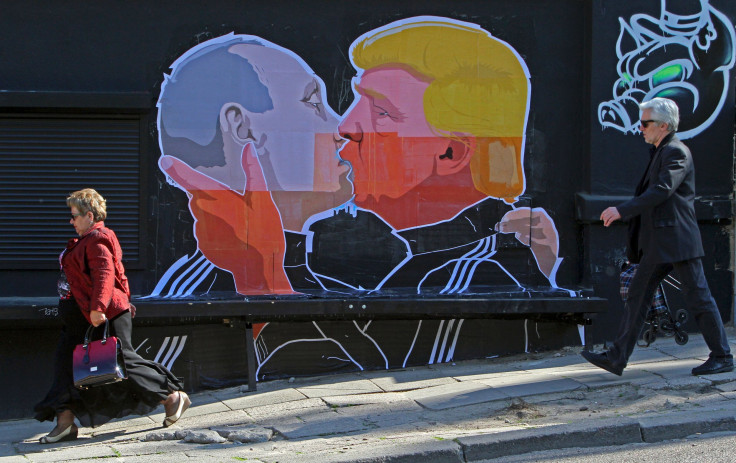Senators Reach Deal To Restrain Trump From Lifting Russia Sanctions, Impose More For Election Meddling

U.S. senators reached a bipartisan deal late Monday to impose more sanctions on Russia, making it potentially difficult for President Donald Trump to ease or roll back sanctions on the country. The sanctions are intended to punish Russia for its alleged meddling in the U.S. presidential elections last year, annexation of Ukraine's Crimea region and for supporting the Syrian regime, which has been accused of using chemical weapons against its own people during the six-year-long civil war.
The legislation was prepared by the Senate Committee on Banking, Housing, and Urban Affairs Chairman Mike Crapo (R-Idaho), Ranking Member Sherrod Brown (D-Ohio), Foreign Relations Committee Chairman Bob Corker (R-Tennessee) and Ranking Member Ben Cardin (D-Maryland), who announced the agreement on Russian sanctions Monday.
Read: Will Donald Trump Fire Robert Mueller, Russia Collusion Investigator?
In order to become law, the Russia Sanctions Review Act would have to pass the House of Representatives, which has become easy after the bipartisan deal. Once that happens, Trump would need to notify Congress before lifting the sanctions, giving lawmakers a 120-day period to pass a joint resolution of disapproval, Reuters reported. Trump would not be able to lift the sanctions during the period.
“It's as comprehensive as we could make it, and it's going to be a very good piece of legislation," Sen. Bob Corker (R-Tennessee) told reporters Monday night, shortly after Majority Leader Mitch McConnell (R-Kentucky) formally filed the deal, according to the Hill.
The new sanctions on Russia would be added to a bill imposing penalties on Iran that the Senate is currently debating. "The amendment to the underlying Iran sanctions bill maintains and substantially expands sanctions against the government of Russia in response to the violation of the territorial integrity of Ukraine and Crimea, its brazen cyberattacks and interference in [U.S.] elections, and its continuing aggression in Syria," U.S. News & World Report reported citing Republicans and Democrats on the committees.
Read: Trump Administration Considers Lifting Sanctions On Russia Amid Investigation
A procedural vote on the Russia sanctions is expected Wednesday, and the measure is expected to get strong bipartisan support.
"Since the Kremlin interfered in our elections, this is the most promising opportunity to pass sanctions legislation with teeth,” Sen. Jeanne Shaheen (D-New Hampshire), another key player in the sanctions talks, said through a spokesman, Politico reported. “There is bipartisan agreement that we need to seize this opportunity and get legislation over the finish line.”
The new sanctions would limit the Trump administration’s aim, stated by the president himself during his campaign, to reshape the United States’ relationship with Russia.
But when asked whether the White House would support the Senate’s proposed congressional review of any changes to Russia sanctions, spokeswoman Sarah Huckabee Sanders told reporters: “The administration is committed to existing sanctions against Russia and will keep them in place until Moscow fully honors its commitments to resolve the crisis in Ukraine.”
“We believe that the existing executive branch sanctions regime is the best tool for compelling Russia to fulfill its commitments,” Sanders said.
Trump has remained skeptical about allegations of Moscow's meddling in foreign elections, including alleged Russian complicity in hacks of French President Emmanuel Macron. He tweeted May 30 about how Russia might be mocking the U.S. for giving a lame excuse of why the Democratic candidate Hillary Clinton lost last year.
© Copyright IBTimes 2025. All rights reserved.






















